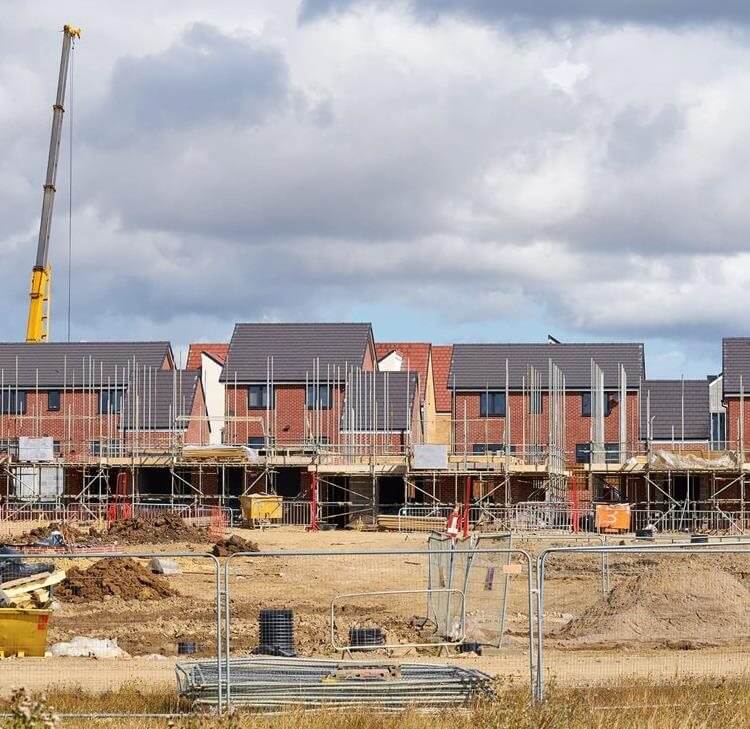Modernising the planning system
Improvement to the planning system has arrived in the form of new digital tools which will make it easier for the general public to have their say on shaping and regenerating their communities.
Improvement to the planning system has arrived in the form of new digital tools which will make it easier for the general public to have their say on shaping and regenerating their communities.
Access to the planning system has historically been difficult. The way in which the general public can get involved is reactive, in that individuals find out about applications and have a short period in which to comment on and object to the development. Consultations often see low engagement rates, often due to distrust in planners or the general public simply being unaware of any action being taken. This is often a negative introduction to the planning system, especially when a controversial development goes ahead.
The hope is that by modernising the planning system, community participation in local decision making will increase, including from those underrepresented groups such as renters and black and ethnic minority groups. Not only is it hoped that engagement with planning matters will be improved, but that local people will also become engaged more widely with issues such as climate or community action.
Public involvement in the planning process helps to make the right decisions, ensuring that difficult issues are discussed and addressed. Ultimately, although decisions may take longer to reach, they will be legitimate. So, the question is, what changes are being made?
The Department for Levelling Up, Housing and Communities has announced that over £3.25 million from the Proptech Engagement Fund has been allocated to 28 projects across England, with the aim of trialling new digital tools such as 3D interactive maps and virtual reality. The aim is to help local people better envisage proposed developments and encourage long term project planning in the community.
The PropTech Engagement Fund was launched in August 2021. The first round of funding (£1.1 million) was allocated in October 2021, with this recent announcement being the second round. The local planning authorities and the amounts they have been allocated are as follows:
- Plymouth City Council (joint bid with South Hams District Council and West Devon Borough Council): £285,000
- Newham Council: £125,000
- Epping Forest District Council (joint bid with East Herts District Council, Harlow Council, Hertfordshire County Council and Essex County Council): £228,800
- East Hampshire District Council: £40,500
- West Oxfordshire District Council: £118,250
- Watford Borough Council: £123,000
- Walsall Metropolitan Borough Council: £120,000
- Birmingham City Council: £65,500
- South Cambridgeshire District Council: £117,000
- Redbridge London Borough: £125,000
- Haringey London Borough: £99,000
- Waltham Forest London Borough: £69,500
- Havant Borough Council: £83,450
- Southampton City Council: £125,000
- Harborough District Council: £125,000
- Royal Borough of Kensington and Chelsea: £118,000
- Epsom and Ewell Borough Council: £125,000
- Runnymede Borough Council: £90,020
- Lambeth London Borough: £92,164
- Leicester City Council: £86,750
- Stevenage Borough Council: £125,000
- Wandsworth: £98,000
- Cornwall Council: £125,000
- Wirral Council: £92,950
- Bolsover District Council: £95,800
- Dacorum Borough Council (joint bid with St Albans City & District Council, Three Rivers District Council, Hertsmere Borough Council, Watford Borough Council and Hertfordshire County Council): £121,750
- Lewes District Council: £112,500
- Surrey County Council: £121,187
Some of the projects include:
- Watford Borough Council are to develop a digital platform to have their say on how to spend contributions from developers on infrastructure in their community.
- Walsall Borough Council are to use funding to encourage underrepresented community voices to have their say on the regeneration of Bloxwich and Walsall Town Centre, which are already supported by the Towns Fund.
- Plymouth Council, with South Hams District Council and West Devon Borough Council, are to produce a set of interactive maps which will assist residents in being able to identify what infrastructure is needed in their local area.
All of these digital improvements have been formed out of the Planning for the Future White Paper, which proposes to create a planning system fit for the 21st century – a ‘digital first approach’. Civil engagement is a huge part of this, which is why the new software will focus on easy access to planning authority tools via phones and social networks - no more are the days of spotting a paper notice on a lamppost.
The pilots will run until September 2022. It is hoped that the pilots will identify best practice and highlight where further innovations are needed, as there are likely to be some teething issues with these new digital tools. Although the funding may be there, a lot is to be achieved in terms of enabling access for all, meaning the technology must be above satisfactory. Structures will need to be in place to ensure ongoing maintenance of any new digital tools, which may come at an additional cost, but it is hoped that the benefit of public engagement and willingness will make a noticeable difference to local planning authorities.
We can only wait and see how these pilots develop and what digital tools will become available to local planning authorities and local communities more widely in the future, and hope that we do in fact get to see a modernised planning system across England in the near future.









































